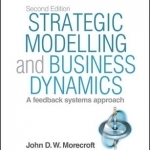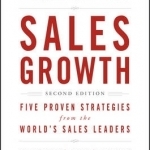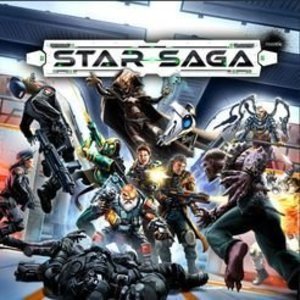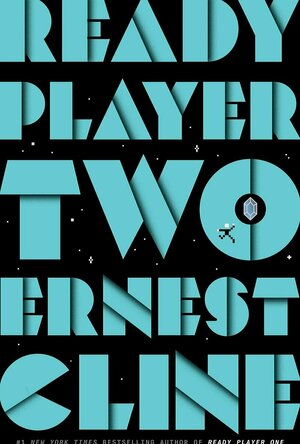
Strategic Modelling and Business Dynamics: A Feedback Systems Approach + Website
Book
Insightful modelling of dynamic systems for better business strategy The business environment is...

A Small Circus
Book
A Small Circus is a powerful 1931 portrayal of a German town on the brink of chaos, from bestselling...

Sales Growth: Five Proven Strategies from the World's Sales Leaders
McKinsey & Company, Inc., Thomas Baumgartner, Homayoun Hatami and Maria Valdivieso de Uster
Book
The challenges facing today's sales executives and their organizations continue to grow, but so do...

Gerhard Fieseler: The Man Behind the Storch
Book
The Fieseler Storch is the most famous slow-speed aircraft of the Second World War. A remarkably...
Peter Shephard (2822 KP) rated Star Saga in Tabletop Games
Feb 22, 2021
I opened the box and was blown away by the quality and quantity of the miniatures as well as the accessories. We are talking dozens of characters with great sculpts, as well as the doors and consoles etc which look fantastic (and to get these alone is a significant cost). Additionally, you get a couple of dozen deck tiles, which are perfect for many sci fi miniatures games, and can be used separately to the in-box missions, if you wanted to go it alone/freestyle for other players.
I watched one of the Play Through videos on YouTube, and decided to try it myself. The rules are pretty clear and easy to follow, and it does help that the first 2-3 suggested moves are spelled out in the rulebook.
The first mission is a 1-2 player mission; you can literally play the game on your own, and there is enough flex in the Nexus (read- GM) cards to give an unknown quality to the game. Controlling one Character only, it is fully meant to get you used to the game.
First time I played, I rolled poorly (with 4 dice, usually failing to hit, or having my hits blocked by armour/scenery) and eventually got swamped by lesser minions. The second time I tried it, I managed to get through to the objective and complete it; having said that, the first loss was still useful as it meant I could see what impact damage and wounds had on the character.
The second mission is a larger mission, controlling several characters with different rules, with locked doors and more enemies - the rulebook also suggest if you have 2 copies of the game, to play the 1st and 2nd missions at the same time - although I actually think there is enough pieces to play the 2 together from the one box with minimal adjustment (maybe a slightly shorter corridor, for example).
In short, although it doesn't have the same "freeflow" as something like the old gem Warhammer Quest, it is close, and is a great sci fi dungeon crawler. There are also lots of expansions, but I need to defeat these bad guys first...
BankofMarquis (1832 KP) rated Another Round (2020) in Movies
Apr 21, 2021
Danish Director Thomas Vinterberg was the surprise Oscar nominee for his direction in the film ANOTHER ROUND (a film he also co-wrote) as he attempted the noble feat of straddling these two sides.
And…the result is an admirable attempt that falls just shy of being good.
Starring the great Mads Mikkelsen (the villain in the first DR. STRANGE film), ANOTHER ROUND tells the tale of 4 Danish High School teachers who are stuck in a rut (call it a mid-life crisis) and come up with the idea of being slightly drunk all of the time to elevate their lives.
The first half of the film flirts with “Frat Boy Party” territory as the 4 friends embark on the quest to see if staying slightly drunk elevates them. The results are quite mixed with moments of joy and triumph mixed in with some cringe-inducing moments. But then Vinterberg mines the “dark side” of alcoholism and the film takes a dark - and more interesting turn - only to have another turn at the end that just didn’t work for me.
Mikkelsen, of course, is quite good in the central role of Martin - the family man in mid-life depression crisis that kicks into “Frat Boy” mode when drinking “just enough”. His character switches back and forth between these 2 modes and Mikkelsen handles these changes like the terrific actor that he is.
His 3 friends played by Magnus Millang, Lars Ranthe and Thomas Bo Larson are all equally depressed and switch back and forth right along with Martin. Unfortunately, none of these 3 have the “it” factor of Mikkelsen, so are really kept in his shadow - with the possible exception of a few moments by Larson.
This is the first film I have seen from Vinterberg, but what I have read about him is that this film pretty much sums up his career. An interesting idea, told fairly well with an ending that doesn’t really land. And that’s what I thought of this film. I’m glad I saw it, but it will fade after a time, as the ending just didn’t provide enough depth to keep ANOTHER ROUND with me for long.
Letter Grade: B-
6 stars (out of 10) and you can take that to the Bank(ofMarquis)
Sarah (7800 KP) rated Ready Player Two in Books
Jan 11, 2021
Right from the start, something feels off about Ready Player Two. It feels a little too forced and the writing style seems rather stilted and basic. All of the pop culture references feel forced and don’t flow, and a lot feel like they’ve been shoehorned in without really contributing to the story (there was a reference to Jodie Whittaker as The Doctor which is great but felt out of place). There was also a lot of explanations that were entirely unnecessary - one example was the description and explanation of Rivendell, which occurred multiple times in the first 100 pages alone. I don’t remember the original being quite so laboured and pedantic when it comes to explaining all of the references. What’s strange though is that there’s also some very subtle references thrown in - a nod to Warden Norton from Shawshank was very much appreciated - and it made me wonder if these were subtle nods or a lack of originality.
The problem with this is that it’s sadly rather dull. The new quest, despite the dire and life threatening consequences, doesn’t come across as particularly exciting or intriguing. It doesn’t help that the quests to gain the seven shards vary from overly descriptive (describing every level of the Sega Ninja game was particularly tedious) to rushed and blink and you’ll miss it, and I just found myself unable to invest very much in the story. I did want to carry on reading, but I’m unsure if this was due to interest or wanting to get to the end and find out if it gets any better. The ending didn’t help either. Some of it was great, but the rest which I won’t reveal gets far too technically complicated and goes a little too sci-fi, even for a novel set in a virtual reality style world.
I really wanted this to be good and instead it was just very disappointing. Another case of an unnecessary sequel, to the point where it has made me want to re-read the original to see if I may have over-egged how good that was too, as I just can’t see how this can be so bad.

Super KO Boxing 2 for iPad
Games and Entertainment
App
FREE TODAY ONLY!!! The most outrageous arcade-style boxing game for the iPhone and iPod touch is...

Galaxy Legend
Games
App
###Top 1 Strategy Space War Game ### ### Play & chat with millions of online players worldwide ###...

Brainbuddy for iPad - Porn & Masturbation Addiction
Health & Fitness and Lifestyle
App
Addicted to Porn and Masturbation? Reboot your brain. Reboot your life. Brainbuddy is designed to...


